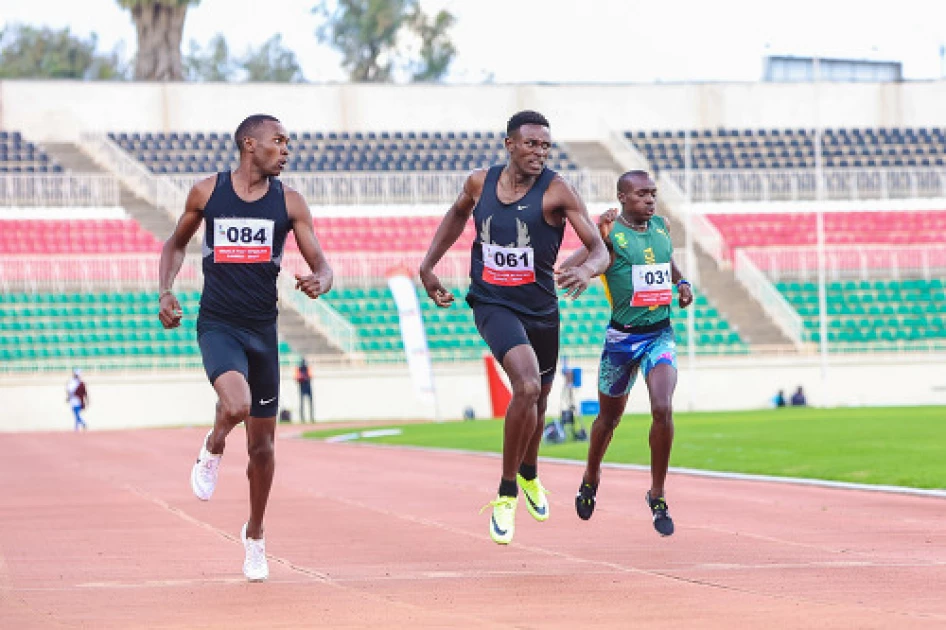As the Kenyan 4x400m relay team heads to a high-performance training camp in Miramas, France, in preparation for the Paris Olympics, a notable absence is stirring controversy. Kevin Kipkorir, the winner of the national trials, was surprisingly omitted from the traveling squad due to issues related to doping tests. This article explores the reasons behind his exclusion, the responses from various stakeholders, and the broader implications for the athlete and the team.
The Late Omission of Kevin Kipkorir
Kevin Kipkorir was expected to be a key member of the Kenyan 4x400m relay team. His performance at the national trials had secured his position, and he played a crucial role in helping Kenya’s mixed 4x400m team rank within the top 16 globally, ensuring their spot at the Summer Games. However, just as the team was set to depart for the training camp, Kipkorir was informed of his exclusion.
Athletics Kenya’s Explanation
Athletics Kenya (AK) cited Kipkorir’s failure to meet the required number of doping tests as the reason for his exclusion. According to AK, Kipkorir did not complete the necessary out-of-competition tests mandated by World Athletics. The organization partly blamed the Anti-Doping Agency of Kenya (ADAK) for not ensuring that all procedures were followed correctly.
Kipkorir’s Defense
In an interview with NTV Kenya, a dejected Kipkorir asserted that he had completed all required doping tests and had the documentation to prove it. He expressed his surprise and disappointment at being excluded at the last minute, stating, “I was called to Team Kenya’s training camp for the Paris Olympics but was surprised to hear on the last day that I was not part of the traveling party.” Kipkorir added that he had participated in the African Championship in the Bahamas, which required comprehensive doping tests, further supporting his claim of compliance.
Detailed Explanations from Officials
Barnabas Korir, Youth Development Director at AK, provided more details, explaining that one of Kipkorir’s tests was conducted less than 21 days before the deadline set by World Athletics. According to World Athletics Anti-Doping Rule 15.5.1, athletes must undergo at least three no-notice out-of-competition tests within the 10 months leading up to major competitions, with each test spaced at least three weeks apart.
Korir noted, “There was a test that came in less than 21 days as prescribed by World Athletics, and as per those rules, he is not qualified to run unless the federation appeals due to extraordinary circumstances.”
ADAK’s Position
ADAK distanced itself from the issue, stating that AK had not completed due diligence. Sarah Shibutse, CEO of ADAK, mentioned, “He has three tests: two are out of competition, one is in competition. The deadline for AIU to test athletes to go to the Olympics was July 4th. AK told us about the athlete on the 4th of July. We checked and found he did not meet the requirements to be part of the team.”
Broader Implications
Kipkorir’s exclusion from the team has broader implications for both the athlete and the Kenyan 4x400m relay team. For Kipkorir, this omission represents a significant setback, depriving him of the opportunity to compete on one of the world’s biggest stages. For the team, losing a top athlete just before a crucial training camp could impact their preparation and performance at the Paris Olympics.
The Importance of Compliance
This incident underscores the critical importance of strict compliance with anti-doping regulations. It highlights the need for clear communication and coordination between athletes, national federations, and anti-doping agencies to ensure all requirements are met well in advance of major competitions.
Conclusion
Kevin Kipkorir’s late omission from the Kenyan 4x400m relay team heading to the Paris Olympics training camp has sparked considerable controversy and debate. While Athletics Kenya cites non-compliance with doping test regulations, Kipkorir maintains he met all the necessary requirements. This situation highlights the complexities and challenges athletes face in adhering to stringent anti-doping regulations and underscores the need for diligent administrative processes to prevent such issues.
As the Kenyan relay team continues their preparation without Kipkorir, the focus will remain on achieving excellence at the Paris Olympics. Meanwhile, Kipkorir’s case serves as a cautionary tale and a reminder of the importance of meticulous compliance with all regulatory requirements in competitive sports.
ALSO READ:Lawrence Cherono Banned for Seven Years Due to Doping Violations


